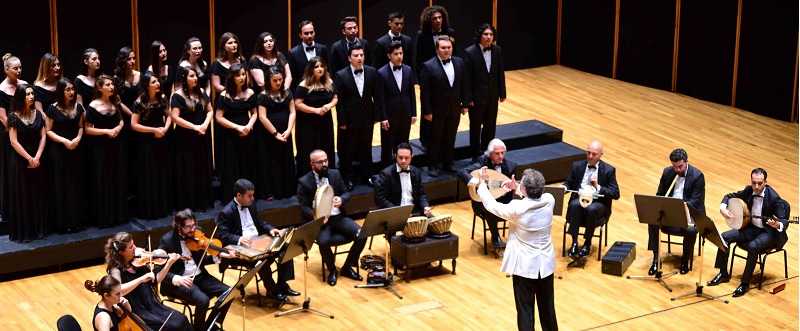31. Uluslararası İzmir Festivali kapsamında 14. YY'dan 19. YY'la Klasik Türk Müziğinde Fasıl
Fasl-ı Atikten Fasl-ı Cedide
“FROM FASL-I ATÎK TO FASL-I CEDID” "Fasil", the most basic performance composition of Classical Turkish Music historically, is a term that expresses the order of works in terms of form, method, feeling and emotion as well as mode integrity.Each form of verbal works, composed of Kâr, Beste, Ağır Semai and Yürük Semai, were composed to be absolutely a part of the fasil in the classical period. Fasl-i Atik is to perform the works composed with this understanding before the neoclassical and romantic period within the composition mentioned. The Classical Turkish Music of the said period, which is different from today's understanding, was considered as an artistic and cultural roof beyond ethnicity and under this roof it had a repertoire including the contributions of artists from different geographies on Turkish, Arabic, Persian, Hebrew and Hindi songs shaped by the principles of our classical music. The new concept of fasil shaped by the changing cultural conditions in neoclassical and especially romantic period, meaning fasl-ı cedid, is mostly composed of odes, the most prominent sounds of the period, beside instrumental forms like peshrev, saz semaisi, taksim, that is often in the form of songs arranged from the big tempos to small tempos. The Choir gives examples of "fasl-ı atik" in the first part and fasl-ı cedid in the second part of the concert, aiming to present these performance forms to lovers of art which are not used properly today.
21 Haziran 2017, Ahmed Adnan Saygun Büyük Salon
Nihat Demirkol'un Kaleminden Hürriyet EGE

Konserden kesitler
TRT 1 Söyleşi

